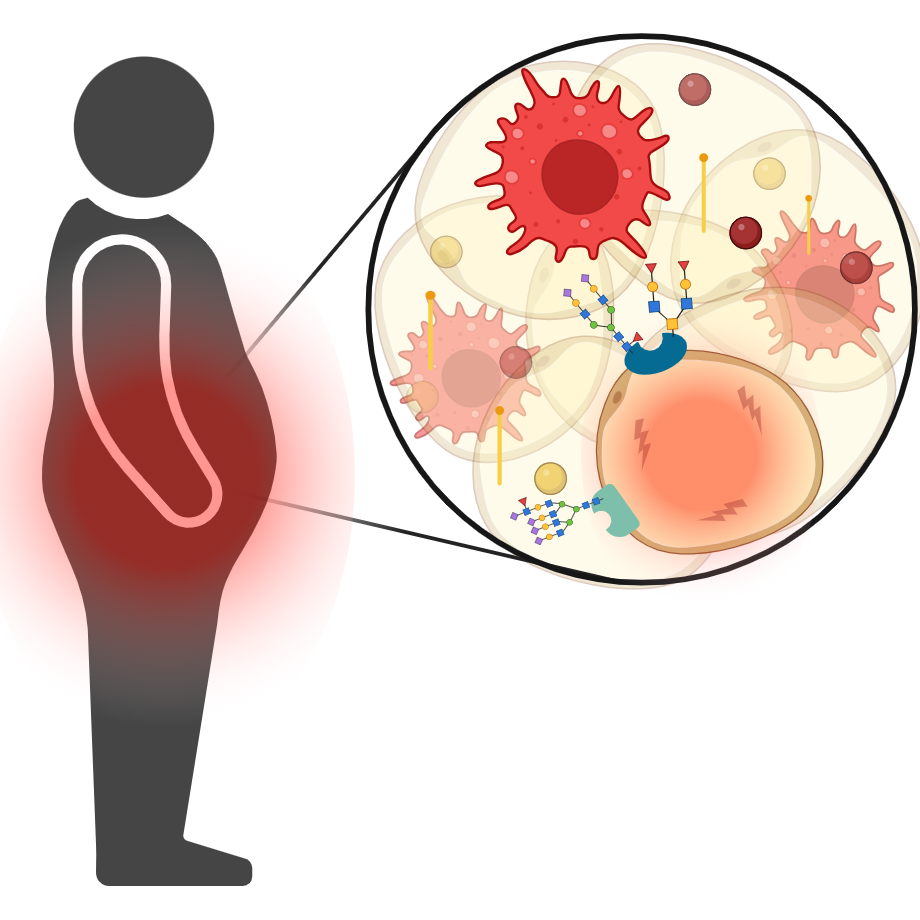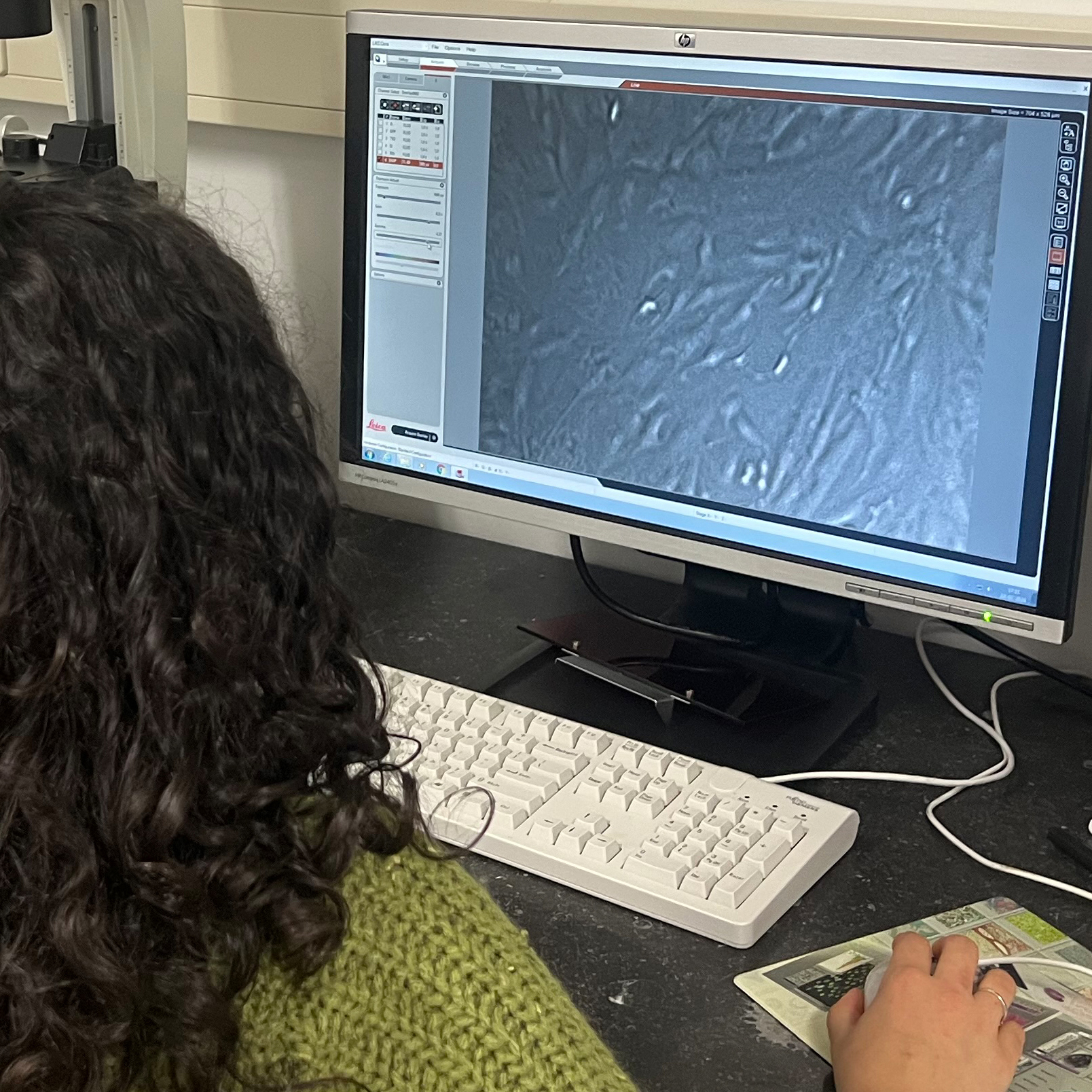Systemic immunometabolism
Aim of the research
The prevalence of obesity, metabolic dysfunction-associated steatotic liver diseases (MASLD) and type 2 diabetes is rising in both Western societies and developing countries. In this context, dysfunctions of the immune system play a central role, with chronic low-grade inflammation (“metaflammation”) contributing to development of insulin resistance and impaired metabolic homeostasis. By contrast, infection with parasitic helminths, which are modulating the host immune response through a wide variety of mechanisms, have been shown to dampen metaflammation, highlighting the dual relationship between communicable and non-communicable diseases. Our group mainly focuses on studying the molecular mechanisms underlying the immune-mediated regulation of metabolic homeostasis in the context of obesity, MASLD/MASH, type 2 diabetes and (helminth) infection. Our research aims to identify (parasite-derived) molecules and/or new molecular targets involved in tissue-specific regulation of insulin sensitivity and glucose/lipid metabolism that can lead to future therapeutic opportunities for the treatment of metabolic disorders and hyperinflammatory diseases.
…The prevalence of obesity, metabolic dysfunction-associated steatotic liver diseases (MASLD) and type 2 diabetes is rising in both Western societies and developing countries. In this context, dysfunctions of the immune system play a central role, with chronic low-grade inflammation (“metaflammation”) contributing to development of insulin resistance and impaired metabolic homeostasis. By contrast, infection with parasitic helminths, which are modulating the host immune response through a wide variety of mechanisms, have been shown to dampen metaflammation, highlighting the dual relationship between communicable and non-communicable diseases. Our group mainly focuses on studying the molecular mechanisms underlying the immune-mediated regulation of metabolic homeostasis in the context of obesity, MASLD/MASH, type 2 diabetes and (helminth) infection. Our research aims to identify (parasite-derived) molecules and/or new molecular targets involved in tissue-specific regulation of insulin sensitivity and glucose/lipid metabolism that can lead to future therapeutic opportunities for the treatment of metabolic disorders and hyperinflammatory diseases.
Main research projects
- Studying the immunometabolic functions of parasite-derived molecules
- Investigating the role of protein glycosylation in adipocyte-macrophage crosstalk during obesity and infection
- Developing human liver 3D model(s) for studying the immune response to viral infection in the context of metabolic dysfunctions
Methodology and Tools
- Murine models of infection and metabolic diseases
- In vivo metabolic phenotyping platform
- High dimensional flow cytometry in blood and metabolic organs
- In vitro (co-)culture systems of primary murine/human metabolic and immune cells
- Molecular and genetic tools for analysis of signalling pathways
&width=710&height=710)
&width=710&height=710)
Group members
- Bruno Guigas (Group leader)
- Joost Lambooij (PhD student)
- Qianyue Zhang (PhD student)
- Frank Otto (Technician)
- Loes Verkade (Technician)
- Lucas Deijlen (Technician in training)
- Iris Breedijk (Master student - Dec25-July26)
Partners / Collaborators
Bart Everts (LUCID), Ron Hokke (LUCID), Sebe Myeni (LUCID), Annie Yang (LUCID), Arnaud Zaldumbide (CCB), Noortje de Haan (CPM), Patrick Rensen (ENDO), Maarten Tushuizen (MDLZ), Minneke Coenraad (MDLZ), Martin Giera (CPM), Nathaniel Martin (LIC)